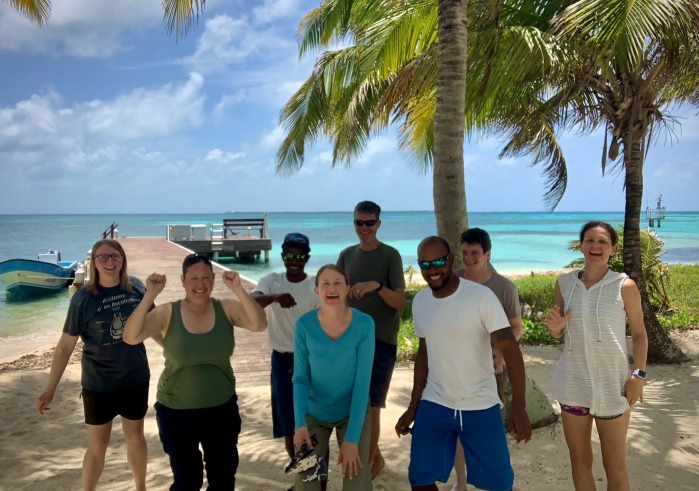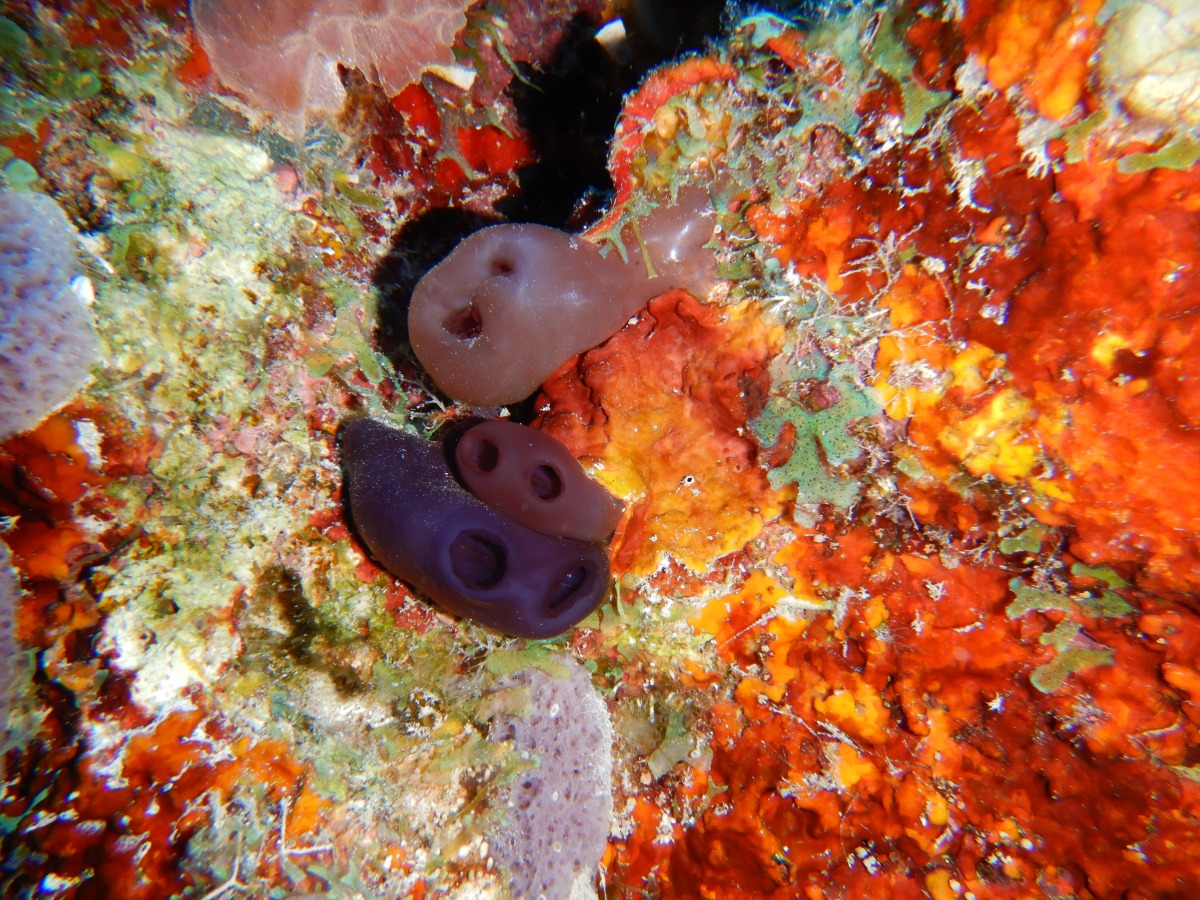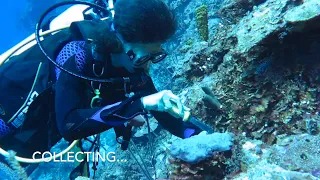Faculty Spotlight: Marie Nydam and Biodiversity Research in Belize

Marie was part of an interdisciplinary team funded by a National Science Foundation grant: two professors and a graduate student from University of North Carolina Wilmington in North Carolina, and one professor and one graduate student from Coastal Carolina University in South Carolina. The team is connected by a love for the ocean and the strange creatures that call it home. The team’s favorite creatures are ascidians, also known as sea squirts (ever pulled up a rope on a dock and been doused by something attached – that’s them!). Despite their deceptively simple nature, sitting on the ocean floor (or in marinas) filtering water for food, these creatures are highly evolved chordates and our closest invertebrate relatives! They also contribute to ocean health through nutrient cycling and biodiversity, and some are notorious invaders than can negative impact coastal ecosystem and aquaculture. Like most life on Earth, ascidians host diverse microbial communities (aka, microbiomes) that appear to play a key role in their ecological success. Yet despite their evolutionary, ecological and economic importance, marine biologists know little about these creatures: how many species exist? How are they related to each other? And what microbes call them home? To address these questions, Marie and her colleagues explored the mangroves, seagrass meadows and reefs of an ascidian biodiversity hotspot, the Mesoamerican Barrier Reef in Belize. From the Smithsonian Field Station in Carrie Bow Cay, they searched the underwater world (over 12 hours of SCUBA diving and many more by snorkel!) and collected hundreds of samples. From these collections, they will not only document biodiversity in Belize, but also develop new genomic resources to study chordate evolution and microbial symbiosis. Ultimately, they want to know how ascidians contribute to healthy ocean ecosystems past, present and future.
Dr. Patrick M. Erwin, UNCW
Dr. Susanna López-Legentil, UNCW
Dr. Lauren Stefaniak, CCU
Dr. Marie Nydam, SUA
Mrs. Brenna Hutchings, UNCW
Mr. Nick Gulnick, CCU


